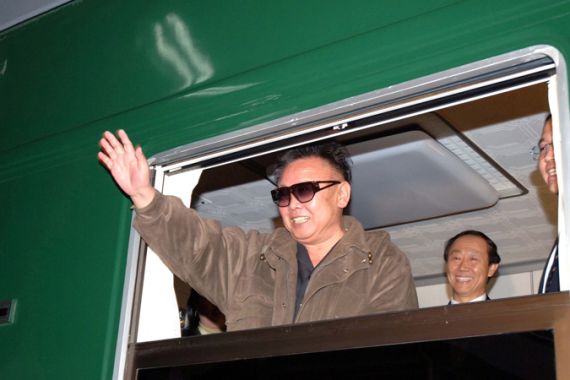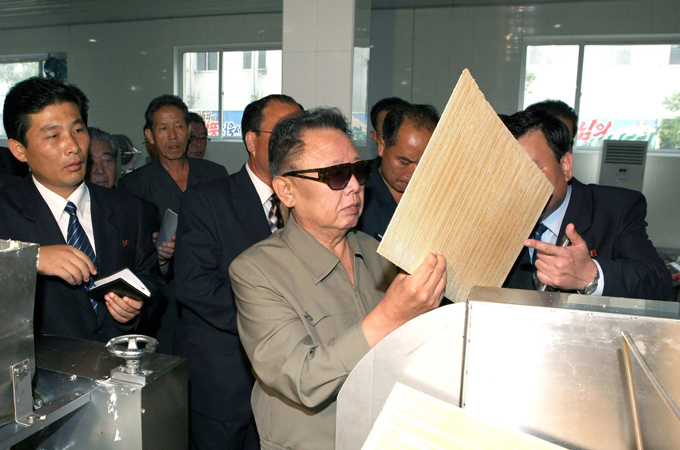N Korea to hold leadership summit
Ruling Workers’ Party to hold conference on September 28 amid speculation that a new leader is to be named.

 |
| Observers say Kim’s deteriorating health has led him to begin succession plans for North Korea [File: EPA |
North Korea’s ruling party is to hold its biggest meeting in decades on September 28 to pick a new leadership, state media have reported.
The official KCNA news agency said on Tuesday that the conference would be held in Pyongyang “for electing its supreme leadership body”, but provided no further details of the agenda.
Speculation has grown as to whether the meeting will appoint the next leader of the communist state amid reports of the deteriorating health of leader Kim Jong-il.
Kim, who is believed to have suffered a stroke in 2008, is said to have accelerated succession plans, and analysts say his youngest son Kim Jong-un is likely to be given an official title at the Workers’ Party conference.
KCNA also reported that party meetings had been held around the country to elect delegates to conference.
“The meetings elected working people and officials who have displayed patriotic devotion at the work sites for effecting a fresh revolutionary surge, remaining intensely loyal to the party and revolution as delegates to the conference,” it said.
Large political meeting
Next week’s meeting will be the biggest political meeting in North Korea since 1980, when Kim himself began his official role to succeed his father and state founder by taking on a Workers’ Party title at the age of 38.
However, the 68-year-old leader, is not expected to go into retirement yet despite his declining health, analysts say, as his son is considered too young and inexperienced.
But by signalling Kim Jong-un’s rise, North Korea may be preparing for a collective father-and-son leadership in years to come, which will cement the family’s grip on power.
South Korea, China, the United States and Japan will all be watching for clues as to how the transfer of power proceeds in the country with a military-first policy.
With North and South still technically at war, having only signed an armistice in 1953, regional powers are anxious to know what changes are expected, and who will command the country’s nearly 1.2 million troops and another 7.7 million in the reserves.